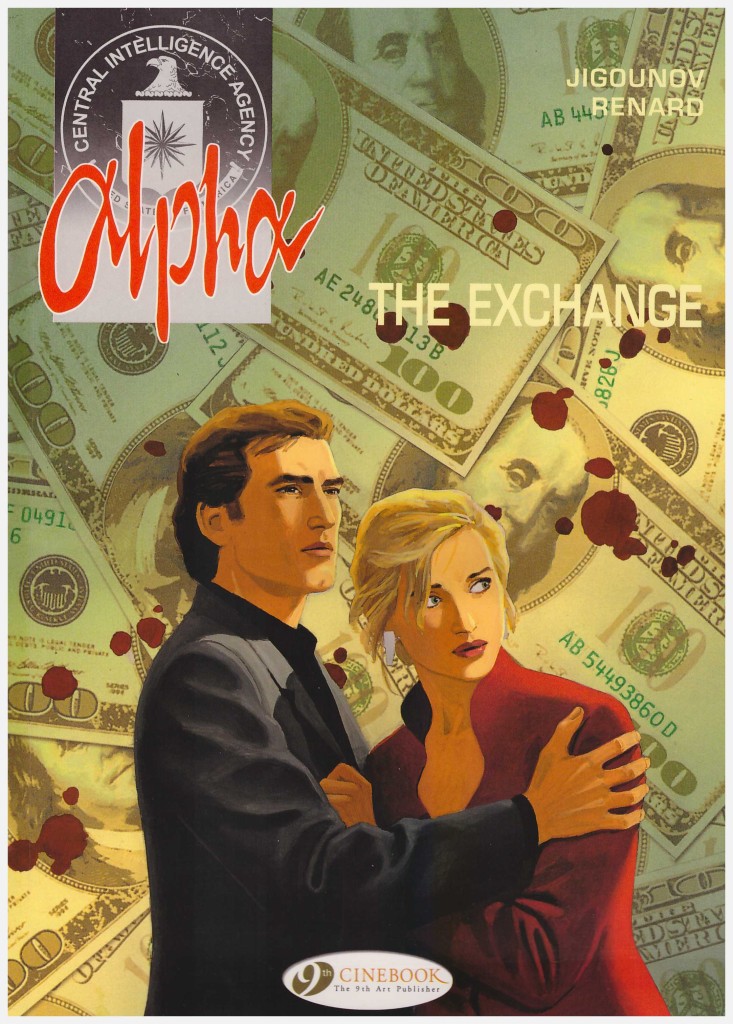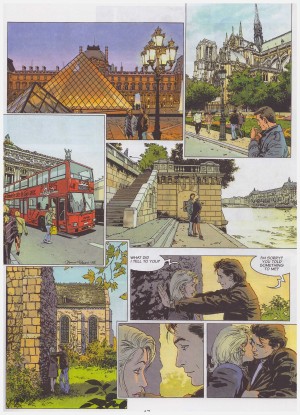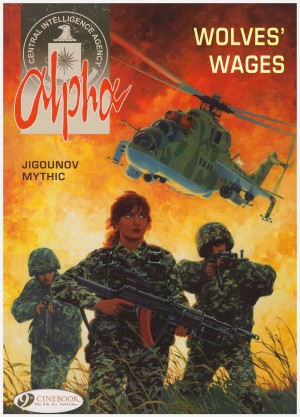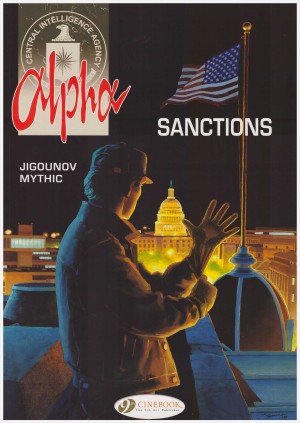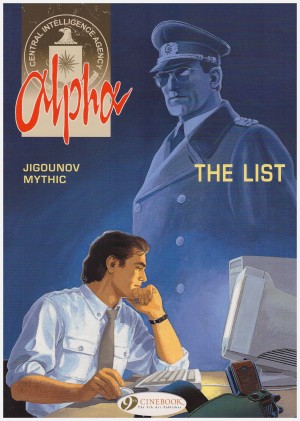Review by Karl Verhoven
Alpha has now run to thirteen books in France, of which the first six have been translated into English. This opening shot couples the first two volumes to present one incomplete story, very much entrenched in the political realities of the mid-1990s when it was produced.
Cinebook have been opening the eyes of the English language reader to the stunning array of artistic talent working within the world of action thriller graphic novels, and in Youri Jigounov they’ve introduced another wonder. In the manner of Philippe Aymond, Christian Denayer, Philippe Francq, and William Vance, Jigounov presents a stunning amount of attractively rendered detail, consistent and credible characters and well choreographed action sequences. This is amid page compositions that never sacrifice the story for flash, and in a naturalistic clear line style.
They remain concealed within the opening chapter, but the series is named after a relatively inexperienced, but astute, CIA agent involved in a plot about money laundering. Assorted people work hard to discover where a meeting is scheduled between an attractive Russian woman, Assia Donkova, and an unknown party. Donkova runs a Moscow art gallery, and spends time in Paris visiting museums, where she first encounters an idealistic young painter Julien, perhaps the only innocent in the entire story. Her real purpose for being in Paris, though, is to arrange a currency exchange.
Writer Pascal Renard very much takes his cue from the works of Jean Van Hamme, presenting a densely plotted thriller with multiple layers and twists. Where he delivers his own spin is with a generous swivel of the spotlight. The title character plays their part, but they’re one among many on whom the focus settles.
Yet Renard lacks Van Hamme’s finesse. The mystery parts of the plot play out in intriguing fashion before a vast info-dump concluding the first chapter’s three act play. It’s not subtle: “What really annoys the CIA is to learn that Russia, the eternal enemy now defeated since the fall of communism, could deal with the organised crime world and maybe, who knows, someday bring about a fusion of the two clans”. That’s approximately half the verbiage from a single panel of four, amid six pages of explanations setting up the second chapter.
This takes place in Moscow, and Jigounov’s portrayal of that city is equally sumptuous. This is still, however a very verbose script, and the title character only moves into the foreground in the concluding stages of what’s again a dense plot with few clues as to who’s manipulating who. This is a value for money package, combining two French albums, albeit at the smaller US graphic novel size, but the story remains incomplete. The conclusion awaits in Wolves’ Wages.
